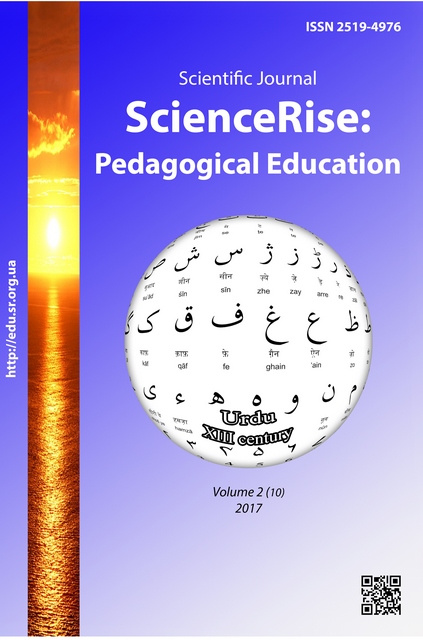The essential analysis of the levels of methodologizing of scientific and professional social work
DOI:
https://doi.org/10.15587/2519-4984.2017.94254Keywords:
methodology, methodologizing, methodological work, methodologizing levels, social work, professionalismAbstract
The article actualizes the importance of methodology that is an inalienable component of scientific searches, is able to define the most important thoughts of theoreticians and practicians in the process of mastering new knowledge, makes the complicated theories and concepts possible and distinctly structurizes them, elaborates the methods and means for the solution of scientific pedagogical problems. It was grounded, that methodologizing is for the scientist-theoretician in social work the way of realization of reflexive activity as to the study of given social object, the process of intensive use of complicated system of approaches, paradigms and instruments for the comprehension of social phenomena, the spiritual-practical mastering of surrounding social world: from the cognition of object to self-cognition and self-creation. There was described the metasystem activity of social workers that starts from socially organized collective thinking of the group, participating in cognition of the world of ideal essences of social object to the common thoughts-communications, connected with verbal-written texts and up to the pure thinking, manifested in non-verbal schemes, formulas, graphs, tables and so on. It was proved, that the top level of professional methodologizing in social sphere, as a result of developmental professional-scientific work, is the methodological activity that is completely elucidated at six levels of methodologizing
References
- Schedrovytskyy, G. P. (2000). Metodologichna organizacija sfery psyhologiji. Psyhologija i Suspil’stvo, 2, 7–24.
- Stjopin, V.; Furman, A. V. (Ed.) (2015). Naukova racionalnist u tehnogennij kulturi: typy ta istorychna evoljucija. Vol. 2. Systema suchasnyh metodologij. Ternopil: TNEU, 5–10.
- Rac, M. (2005). Mesto normirovanija i ego strategija v procesah razvitija. Kentavr, 35, 7–13.
- Rebukha, L. Z. (2005). Osoblyvosti metodologuvannja pid chas provedennja psyhologichnoji ekspertyzy. Vitakul’turnyj mlyn, 54–57.
- Melnychuk, I. (2011). Teorija i praktyka profesijnoji pidgotovky majbutnih social’nyh procivnykiv zasobamy interaktyvnyh tehnologij [The theory and practice of training of future social workers by the means of interactive technologies]. Ternopil, 584.
- Furman, A. V. (2016). Ideja i zmist profesijnogo metodologuvannja [Idea and content of professional metodologizing]. Ternopil: TNEU, 378.
- Schedrovytskyy, G. P. (1997). Filosofija. Nauka. Metodologija. Moscow: Shkola. kult. Politiki, 656.
- Zinchenko, A. P. (1994). K programme rabot po teme “Shemy i mehanizmy shematizaciji v misljedejatelnosti”. Kentavr, 1, 3–8.
- Furman, A. (2005). Rivni ta kriteriji metodologyvannia u profesijnomu zdijsnenni naukovo-doslidnoji dijal’nosti. Vitakul’turnyj mlyn, 5–13.
- Tyuptya, L. T., Ivanova I. B. (2008). Social’na robota: teorija i praktyka [Social work: theory and practice]. Kyiv: Znannja, 574.
Downloads
Published
How to Cite
Issue
Section
License
Copyright (c) 2017 Лілія Зіновіївна Ребуха

This work is licensed under a Creative Commons Attribution 4.0 International License.
Our journal abides by the Creative Commons CC BY copyright rights and permissions for open access journals.
Authors, who are published in this journal, agree to the following conditions:
1. The authors reserve the right to authorship of the work and pass the first publication right of this work to the journal under the terms of a Creative Commons CC BY, which allows others to freely distribute the published research with the obligatory reference to the authors of the original work and the first publication of the work in this journal.
2. The authors have the right to conclude separate supplement agreements that relate to non-exclusive work distribution in the form in which it has been published by the journal (for example, to upload the work to the online storage of the journal or publish it as part of a monograph), provided that the reference to the first publication of the work in this journal is included.







